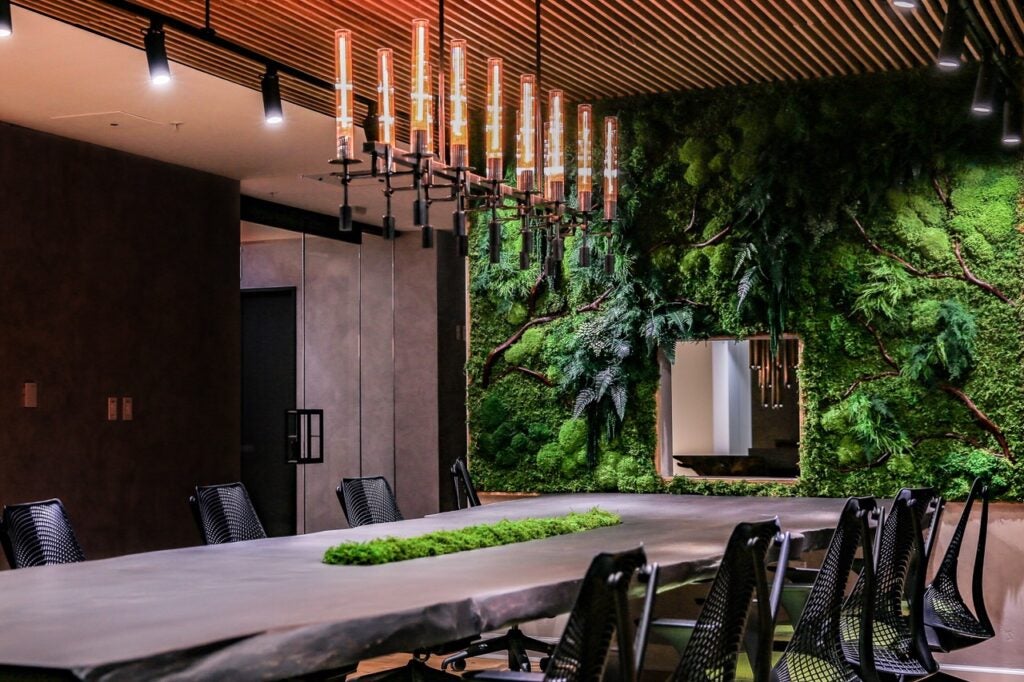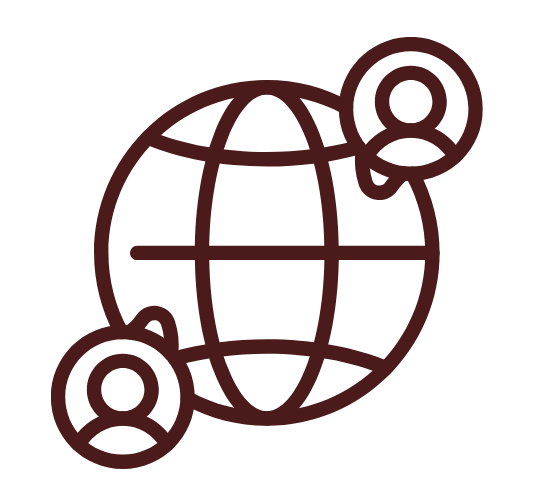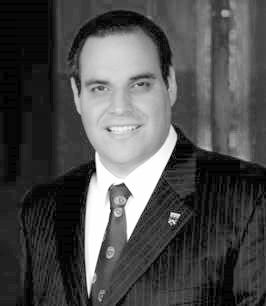Department of Environmental Health
We’re leading the global charge to understand and solve the world’s most pressing environmental health challenges. Learn how we can make an impact together.
665 Huntington Avenue, Building 1, Room 1301
Boston, MA 02115
Strengthening Innovation and Sustainability Ecosystems in West Florida
Strengthening Innovation and Sustainability Ecosystems in West Florida is a dynamic, hands-on program designed to empower committed entrepreneurs in the greater Tampa Bay, FL, area with the knowledge, skills, and community connections needed to launch purposeful businesses and social enterprises. The course is offered by The Ring Workspaces, in collaboration with John Spengler, Akira Yamaguchi Professor of Environmental Health and Human Habitation at the Harvard T.H. Chan School of Public Health, and with the support of community stakeholders, The Alliance for Tribal Clean Energy.
This education program is designed for individuals with diverse professional backgrounds who wish to contribute to the development of the Innovation and Sustainability Ecosystem in West Florida. This is a 50/50 hybrid course that combines both in-person sessions at The Ring and online learning. Course content will be delivered through weekly 1.5-hour virtual sessions held on Friday evenings over seven months. Although recordings of all sessions will be made available, participants are expected to attend in-person sessions (3 hours each). Locations and times will be confirmed.
Each participant must create a social or business plan for a new company or remove a barrier for the local innovation ecosystem. Participants will receive a Certificate of Participation upon meeting all the education program requirements.

Background
The typical survival rate of sustainability, social, and health startups ranges from 10% to 25% during the first year, which severely hinders efforts to develop innovations that improve health and the environment; however, survival rates increase two to four times in healthy innovation hubs, which also boost socioeconomic well-being. The natural development of such hubs often takes decades, as many cities lack key components of a functional innovation ecosystem, including investors, specialized services, and supportive reforms that enable people with great ideas to successfully build businesses.
This educational project aims to create opportunities in West Florida to broader participation in the development of an innovation ecosystem to enhance economic and environmental well-being. This project involves an education program to democratize access to tools and knowledge, creating a “critical mass” of citizens who will work to establish a fully functional regional innovation and sustainability ecosystem within a few years. This document outlines the topics for the educational program designed to strengthen West Florida’s innovation and Sustainability Ecosystems.
Who is this course for?
- Aspiring and current entrepreneurs residing in the greater Tampa Bay, FL area
- Social innovators and business professionals seeking to launch or enhance ventures with societal impact
- Startup founders, business students, or early-stage teams motivated to create value beyond pure profit
- Community leaders with a passion for practical, sustainable change
Apply
Enrollment Open. Although the program begins in March 6, 2026, we encourage participants to apply as soon as possible, as space is limited. Priority will be given to highly qualified applicants who apply early. The first session will be held in person and will last approximately three hours. Additional details will be provided.
About the Course
The objective of this course is to share best practices, procedures, and lessons learned in creating connections between academia and industry, new product development techniques, cost reduction techniques and assessment of environmental impacts, techniques for the development of business plans to finance new Small and Medium Enterprises (SMEs) related to sustainability and health, and the mechanisms of development of innovation and sustainability ecosystems in the community to attract talent and investors to the region.
By the end of the course, participants will be able to:
- Analyze and prioritize local or societal needs as opportunities for innovation.
- Develop comprehensive business or social plans, including risk and benefit assessments.
- Communicate value propositions that highlight broad community or societal benefits.
- Present their concepts compellingly to peers, mentors, and potential investors.
- Join a growing network of purpose-driven innovators in the Tampa Bay region.
The course begins on March 6, 2026, and meets for 7 months.

This is a hybrid course that combines both in-person and online learning. Course content will be delivered through weekly 1.5-hour virtual sessions held on Fridays evenings. Recordings of all virtual sessions will be made available to participants.

In addition, all participants are expected to attend two in-person sessions (3 hours each). Locations and times will be confirmed. The first in-person session will take place in March.
Participants will collaborate in small groups (up to four people) on a project, which will be shared with the entire class during live sessions.
There are no tuition fees for this course.
- Innovation Ecosystems, their main components, and an Assessment of an Innovation and Sustainability Ecosystems: The Case of Clearwater, Florida
Fundamentals of an Innovation Ecosystem and how this regional mechanism could help entrepreneurs overcome the “Death Valley” that several sustainable and health startups face after the “demonstration day” for their technologies and products. (3 hours) - Required legal frameworks for an Effective Innovation Ecosystem
This session will describe best practices and lessons learned about the laws or legal frameworks required to have a functional innovation ecosystem. (1.5 hours) - Financial Mechanisms for Innovative Startups
This session will analyze the basic concepts of risk and the cost of money, and how these factors hinder the creation of new, sustainable, and health businesses. (1.5 hours) - The Business Plan Format and Its Role in Reducing Risks for Innovation Investors
This session will cover the basic concepts for writing a business plan for a sustainable and health startup, and how this action can help reduce risk, which in turn could facilitate sufficient and proper financing for such startups. (1.5 hours) - Lessons Learned and Best Practices for Preparing and Delivering an Effective Business Pitch
This session will describe the format, content, and sequence for an effective business pitch for a high-impact startup. It will also share recommendations from successful entrepreneurs and investors about what to do and what to avoid before, during, and after a pitch, aiming to secure funding for a high-impact startup. (1.5 hours) - Strategies to Increase the Availability and Activities of Innovation Investors in a Community
This presentation will analyze effective strategies for attracting innovation investors to a community, ensuring they are accessible and have local offices, thereby increasing the likelihood of securing funding for local startups. (1.5 hours) - The Role of Government in Supporting Innovation and Sustainability Ecosystems
The role of national and local governments in supporting basic and applied research, what kind of grant schemes and entrepreneurial support have proven to be more effective in fostering high-impact startups, what non-financial government support systems enhance an innovation ecosystem, and how this relates to the creation of sustainable and health companies. (1.5 hours) - The Importance of Respectful Community Outreach and Proper Characterization of Problems to Create Successful Startups
This session will share recommendations for respectfully engaging urban, rural, and Tribal communities. (1.5 hours)
How to Apply
Course participants should possess:
- Demonstrated commitment to making a positive impact through entrepreneurial action
- Willingness to engage actively online and attend two in-person sessions in Tampa Bay
- Capacity to dedicate time for weekly sessions, assignments, and collaboration
- Basic understanding of business concepts or relevant experience preferred, though not required
The selection criteria will consider a combination of factors, including field of expertise, career stage, participation in innovation activities, tribal affiliation, sustainability interest, organization or startup (if any), and overall depth of commitment to innovating solutions that promote flourishing and disaster-resilient communities.
Selection is via online application. Space is limited to ensure a highly interactive experience. If we receive a high volume of applications, we may consider expanding the number of available spots in the course
Fees: There are no tuition fees for this course.
